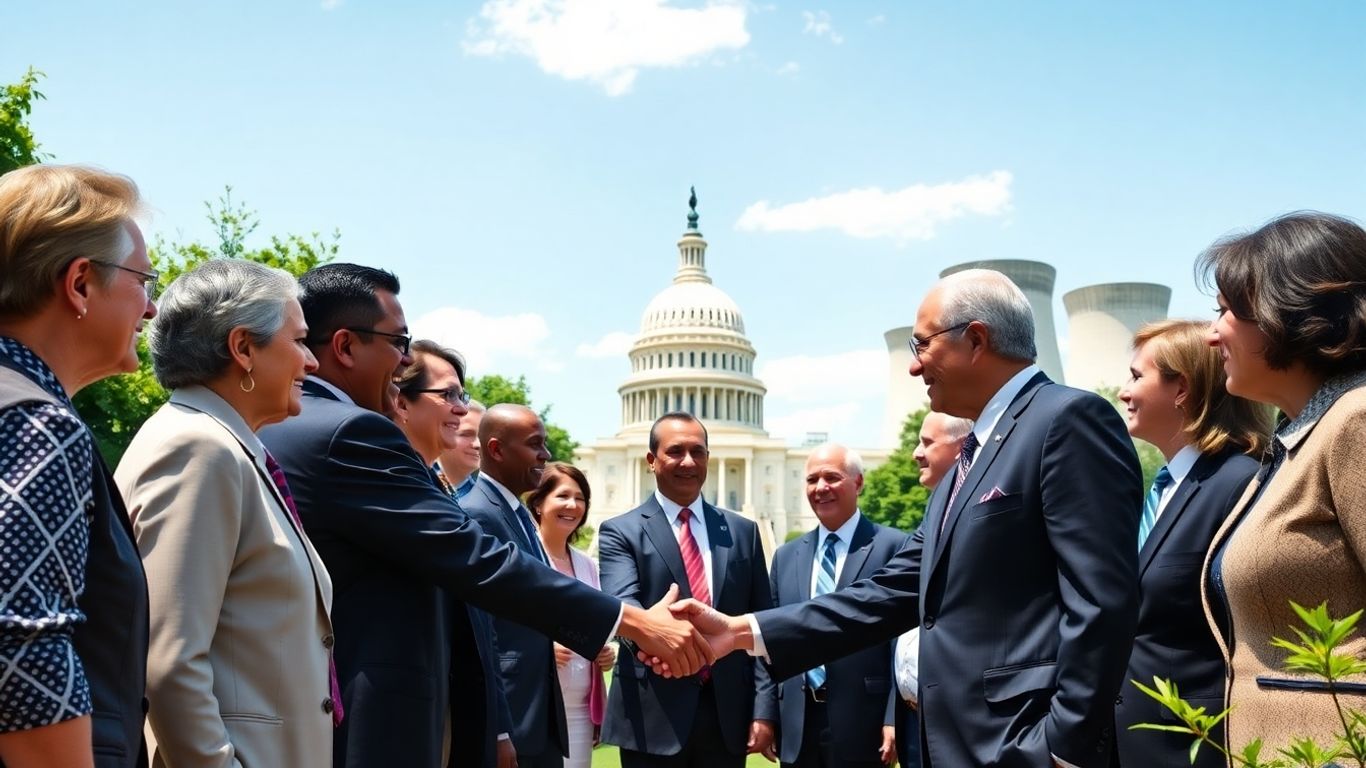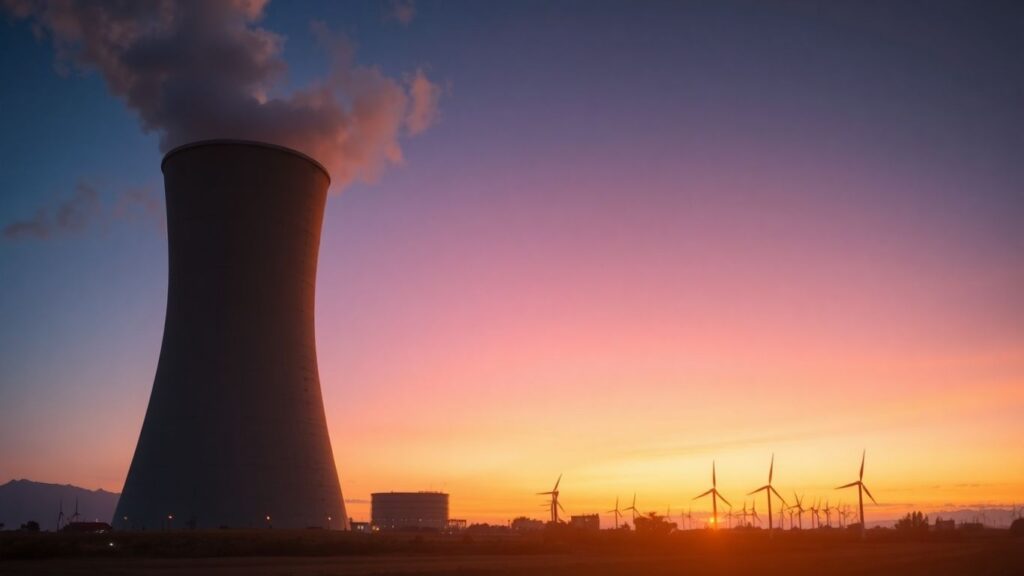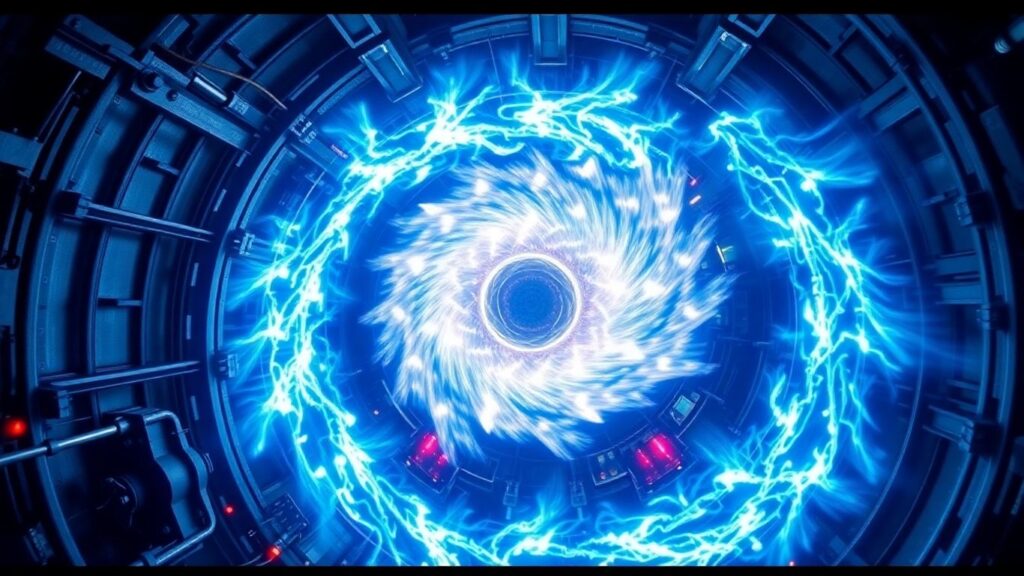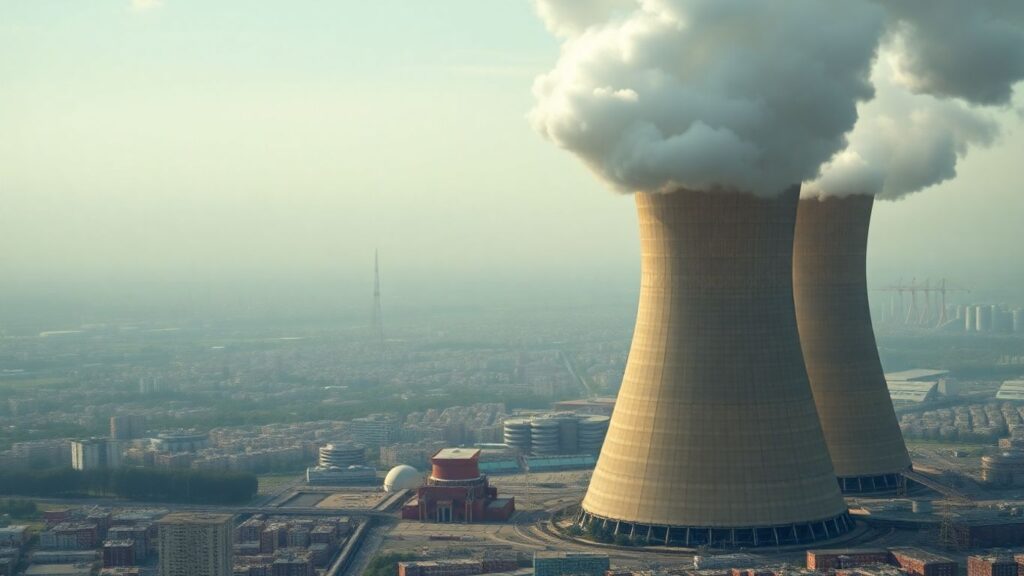Congress has made a significant stride toward modernizing the nation’s energy policy by passing a set of major pro-nuclear energy bills, the result of rare bipartisan collaboration. The legislation aims to bolster the adoption of nuclear power, with supporters touting it as a crucial step for clean energy and national security.
Key Takeaways
- Congress passed sweeping pro-nuclear energy bills with broad bipartisan support.
- The legislation streamlines regulation, boosts funding for advanced reactors, and encourages private sector investment.
- Nuclear energy is being positioned as a key element in decarbonizing the electricity grid and enhancing U.S. energy resilience.
- Both major parties backed the effort, citing economic, security, and climate benefits.
Political Context And Congressional Cooperation
In a sharply divided era, the passage of these bills stands out for its bipartisan nature. Lawmakers from both sides of the aisle united over shared goals: driving innovation, ensuring grid reliability, and affirming America’s leadership in nuclear technology.
This consensus reflects growing recognition of nuclear energy’s role in reducing greenhouse gas emissions, safeguarding the grid against disruptions, and supporting high-quality jobs across the country.
Key Provisions Of The New Nuclear Legislation
The newly passed bills introduce:
- Regulatory Modernization: The Nuclear Regulatory Commission (NRC) will pilot faster licensing processes for advanced nuclear designs, cutting years off traditional approval timelines.
- Federal Investment: Increased funding will support research, development, and demonstration of next-generation reactors, including small modular reactors (SMRs).
- Public-Private Partnerships: Policies incentivize collaboration between government and industry, aiming for real-world deployment of innovative nuclear systems.
- Workforce Development: New programs will train workers for jobs in nuclear energy construction, operation, and regulation.
National Security And Energy Independence
Supporters emphasize that a robust nuclear sector strengthens energy independence, reduces reliance on foreign sources, and enhances national security. By investing in domestic nuclear technology, the U.S. aims to secure its energy future and retain competitive advantages in the global energy market.
Environmental Benefits And Concerns
Backers of nuclear energy cite its critical contribution to achieving net-zero climate goals, as reactors produce carbon-free baseload electricity. However, some lawmakers and advocacy groups urge continued attention to safety, waste management, and public transparency as deployment accelerates.
Looking Ahead: Implementation And Impact
As the bills move to the implementation phase, federal agencies and industry stakeholders are gearing up for the next steps:
- Launching pilot licensing programs for advanced reactors.
- Rolling out grants and funding opportunities.
- Coordinating with state governments and local communities hosting new projects.
Congressional leaders view this legislative success as both a blueprint for future energy policy collaboration and a foundation for building America’s next-generation clean power system.
Sources
- POLITICO Pro, POLITICO Pro.
- POLITICO Pro, POLITICO Pro.












